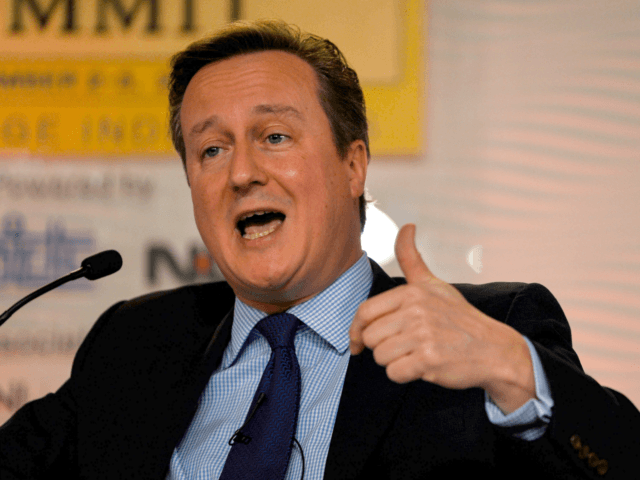David Cameron has said he “doesn’t regret” calling the referendum on European Union (EU) membership, whilst admitting the bloc was assuming more power over the UK, which had a bad relationship with the bloc.
However, the former Tory Prime Minister who campaigned against the divorce, also said the British people had “taken the wrong course” in opting to leave the EU, in his first major TV interview since leaving office in 2016.
He told CNN the EU’s single currency increasingly meant too many EU decisions were starting to be made “about us, without us” and the UK was too often a “reluctant and sometimes unhappy tenant”.
Speaking of this “problem”, he added: “I wanted to fix it inside the European Union. The British public chose that we would fix it from outside the European Union.”
Really, Dave? https://t.co/80W2UIcXm2
— Breitbart London (@BreitbartLondon) January 24, 2018
Despite his support for EU membership, he had “made a promise to the British people” to hold a referendum and “I kept that promise”. Mr. Cameron continued:
“I don’t think you can belong to these organisations and see their powers grow, and treaty after treaty, and power after power going from Westminster to Brussels and never asking the people whether they are happy governed in that way.
“But, I haven’t changed my mind about the result of the referendum. I wish the vote had gone another way. I think we have taken the wrong course.”
While he still disagreed with Brexit, Mr. Cameron added that he thought the idea of Britain being “a friend and a neighbour, and a partner of the European Union, rather than a member of the European Union” was a “legitimate choice”.
“And that’s what the country has chosen. I accept the result. I wish my successor well in the work that she is doing,” he said.
“I know as being prime minister, it is a hard enough job without your predecessor giving you a running commentary, and that’s why I haven’t been giving interviews, and the rest of it.”
Project Fear: Cameron Claims Brexit Would Drive Up Food Prices https://t.co/lj9oWHBREP pic.twitter.com/WL6BDnS1Cd
— Breitbart London (@BreitbartLondon) May 22, 2016
Ahead of the referendum, Mr. Cameron promised to “renegotiate” the UK’s relationship with the EU, including free movement, but what he achieved was widely perceived to be tokenistic and not substantial enough to be hailed a success.
He stepped down as Prime Minister just days after the vote to leave the bloc in June 2016.
During the campaign, Cameron imitated the tactic used to win the Scottish referendum, promoting numerous scare stories about life outside the EU, which were quickly disproved and seen to challenge his credibility.

COMMENTS
Please let us know if you're having issues with commenting.